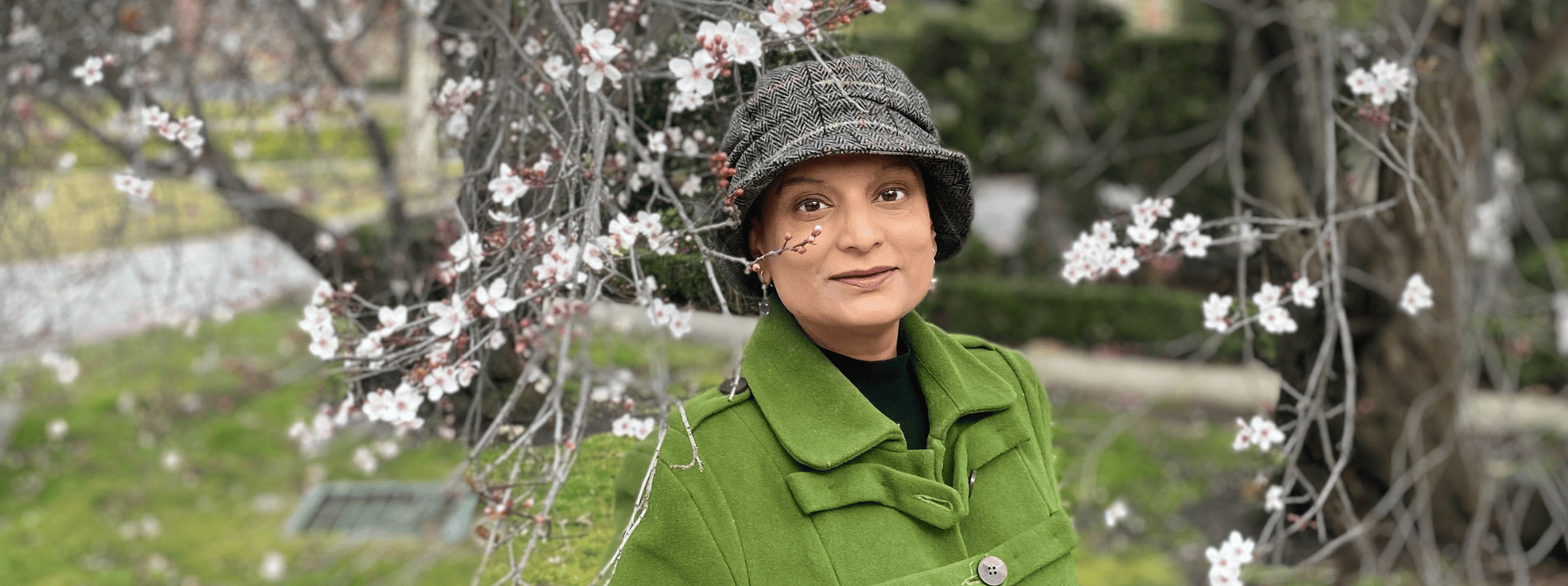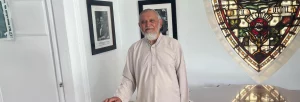(December 16, 2022) Pallavi Aiyar was an English teacher in Beijing, when the SARS broke out in 2002. She travelled with 39 other journalists from Beijing to Lhasa, making the 4000-km long, historical journey by train on the world’s highest highland railway. The award-winning Indian author’s reportage for seven-and-a-half years as a foreign correspondent eventually won her the Prem Bhatia Memorial Prize for excellence in political reporting for her dispatches from China. She took a bold deep dive into China’s unregulated wet markets and the sale of wildlife, as she uncovered the origins of the Coronovirus outbreaks – first during the SARS epidemic and then again during Covid-19 in 2020. From the partial quarantine to the government’s official stand on telling the people to drink orange juice and play badminton, her book on China, Smoke and Mirrors: An Experience of China, captures it all.
Pallavi is the author of several books, including Punjabi Parmesan: Despatches from a Europe in Crisis, and has done extensive reportage for top publications including The New York Times, Granta and The Los Angeles Review of Books. Currently living in Madrid, Spain, with her family, Pallavi sits down with Global Indian for a free-wheeling interview about her travels, writing, and her struggles with overcoming breast cancer.

Indian author and journalist Pallavi Aiyar
Foundation of a Substantial Education
Two degrees with full scholarships from elite institutions, eight published books, with a ninth in the offing, a thriving career as a foreign correspondent for leading publications and surviving breast cancer at 46 – her life thus far has been full of mostly highs and a few lows.
Pallavi’s career graph is an inspiring lesson in what one can achieve through passion, dedication, and talent. Her book on contemporary Europe’s crises, Punjabi Parmesan: Dispatches from a Europe in Crisis, was published in the United States as New Old World: An Indian Journalist Discovers the Changing Face of Europe. As a foreign correspondent, she has written for leading international and Indian publications including The New York Times, Granta, The Los Angeles Review of Books, The Times of India, The Hindu, Indian Express, The Sunday Telegraph, The South China Morning Post, The Wall Street Journal, etc.
In an exclusive interview with Global Indian from her home in Madrid, Spain, Pallavi talks about her life and times as a writer. Graduating with a degree in philosophy from St Stephen’s College in Delhi; she then went to Oxford University to study Modern History. She reveals how her career in journalism began. “I got a job with NDTV when it didn’t even have its own channel. It produced all the content for Star News. I didn’t enjoy TV as a medium, it felt shallow and I hated the feeling of constantly having to respond to something. It was a constant adrenalin run and I’m not an adrenalin junkie. Youngsters like me were usually put on night shifts and it wrecked my system.”
Pallavi decided to quit and study some more. At that time, the London School of Economics was starting a new Global Media and Communication programme. It was a joint degree with the Annenberg School of Communications at the University of Southern California. She serendipitously met her future husband, Julio Arias, while there. She recalls, “A colleague from NDTV, Amrita Gandhi, who is the great-granddaughter of Mahatma Gandhi was also studying at LSE. She was one of the first people I met on campus. Just as we got talking, another friend of hers, Julio, came up to us. She introduced the two of us and looking back, it was a pivotal meeting because we started hanging out and several years down the road, got married.”
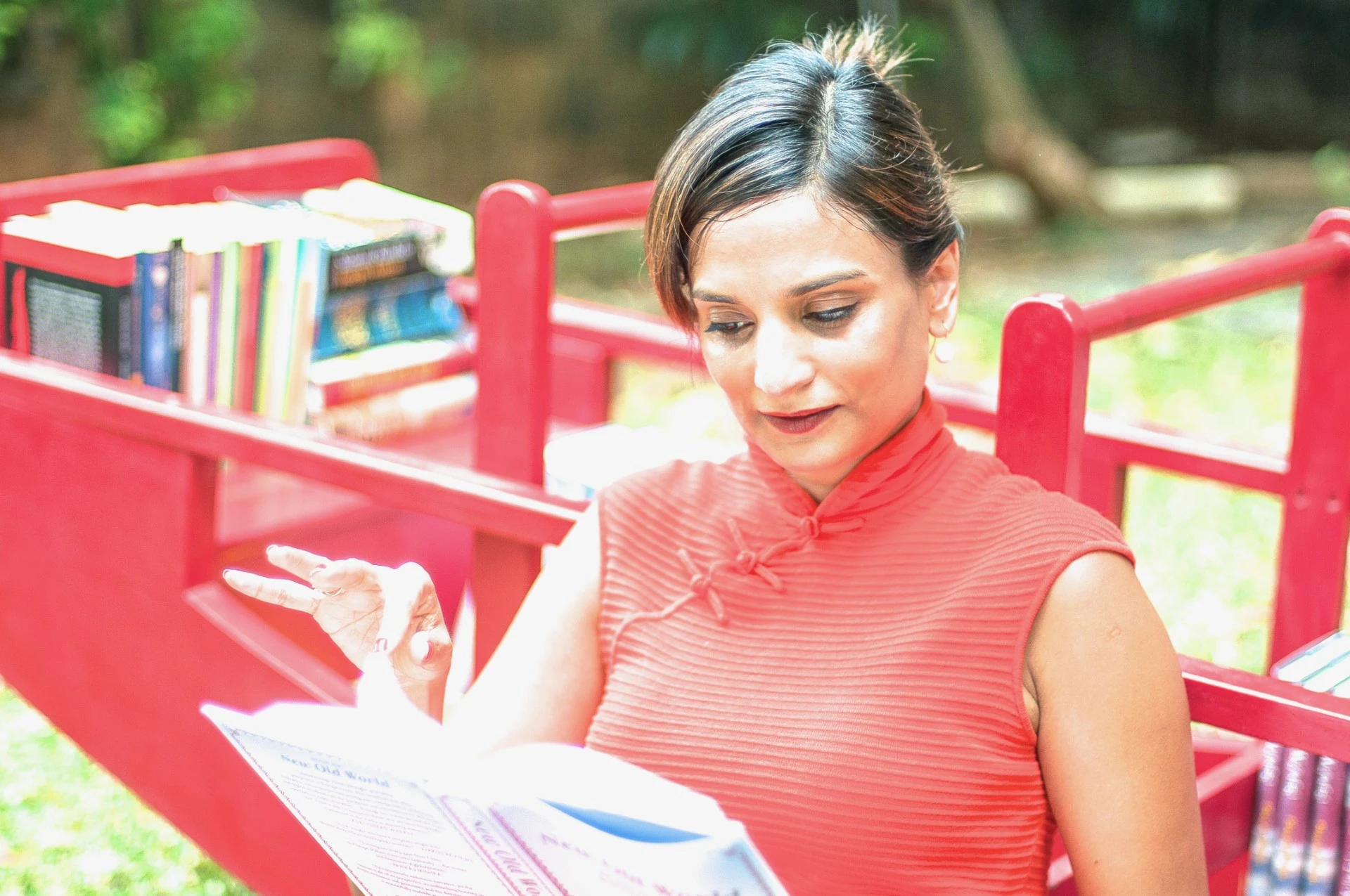
Cross Cultural Influences
Julio is from Spain but had lived and studied in the UK since he was 15. He told Pallavi soon after they met, that the real place to focus on in the future was China. At that time, she says, “China was like this black hole for most Indians. There was very little bilateral trade, no political contact, and no direct flights between the countries. Until then Prime Minister, Atal Behari Vajpayee’s visit to Beijing in 2003, China was peripheral to the Indian imagination.”
For the second year of her MSc degree, Pallavi had to go to Los Angeles, and after she graduated in the summer of 2002, she joined Julio in Beijing, who had moved there a year earlier. She was thoroughly impressed with the country when she landed. “By a stroke of luck, I got a job teaching English news writing at the Beijing Broadcasting Institute. I was a glorified English teacher, but it was a fabulous opportunity to learn about young people in China firsthand. I lived on the campus and within four months, the SARS coronavirus hit. I reported on it for NDTV and wrote op-eds for leading Indian dailies.”
For the next seven-and-a-half years, Pallavi covered the length and breadth of the country. She upskilled to do justice to her job. “I learnt to speak Mandarin and worked with the Indian Express and NDTV. In 2005, I switched to The Hindu and was with them for several years. I was the only Indian journalist based in Beijing who spoke Mandarin. I travelled to virtually every one of China’s 23 provinces.”
Starting a family – and a new life in Spain
Pallavi and Julio married in 2005, and her first son, Ishaan, was born in 2008. In the meantime, Julio had taken the foreign services exams for the European Union, which he passed. His posting in 2009 took them to Brussels, where they lived for three-and-a-half years and her younger son, Nicolas, was born. At this time, Pallavi was a Europe correspondent for the Business Standard and had written two books – the China memoir, Smoke and Mirrors and a novel, Chinese Whiskers, a modern fable where China is described through the eyes of two alley cats.
In 2012, when her husband was posted to Jakarta, Indonesia, Pallavi covered the region for several publications. Next, Pallavi and her family moved to Japan in 2016, where they lived for four years. Pallavi admits she couldn’t master the Japanese language and speak it like she did Chinese and Indonesian. “Japanese was my Waterloo, linguistically speaking. I got nowhere with it.”
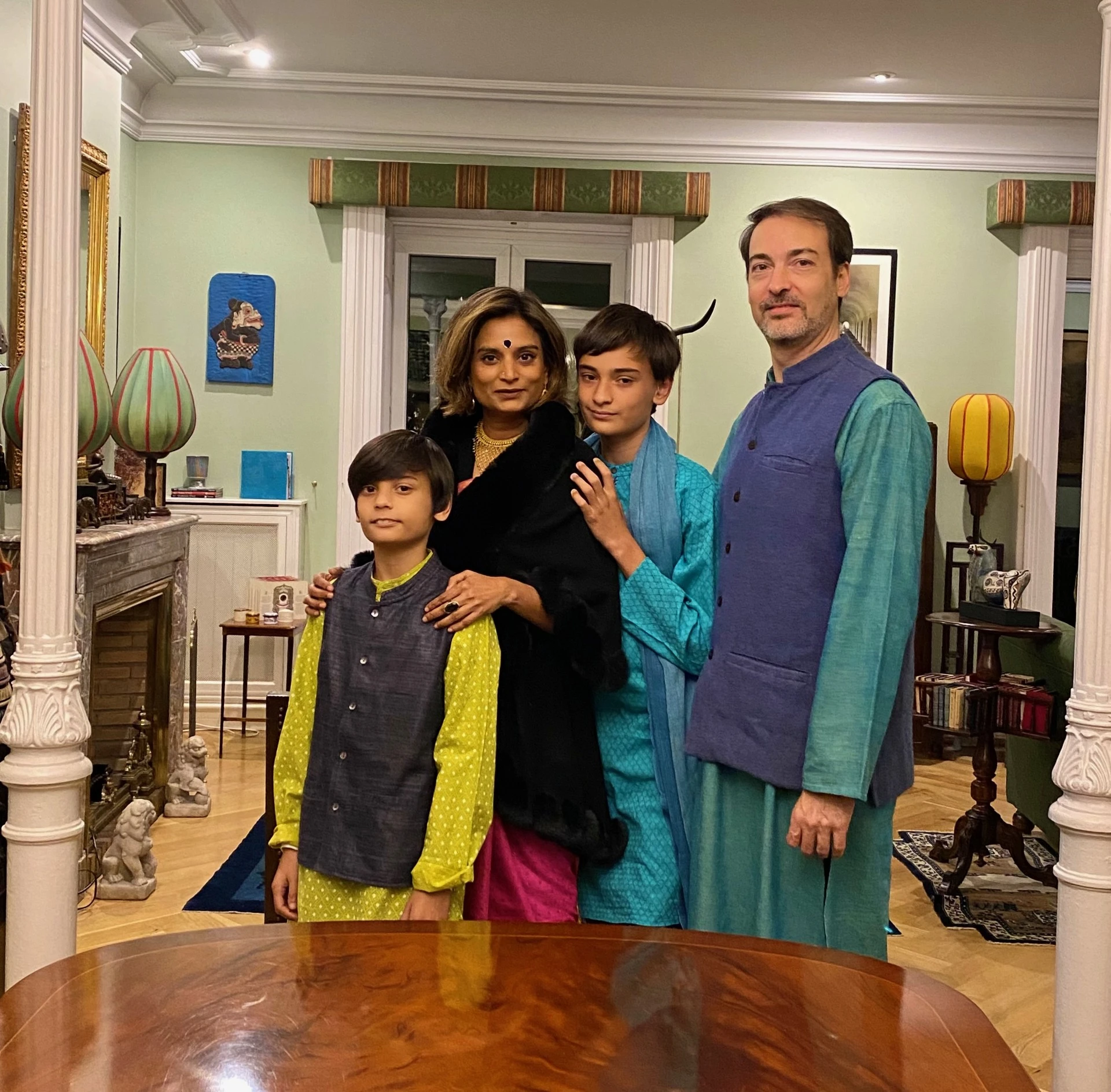
Pallavi Aiyar with her family.
Writing is Second Nature
Pallavi currently teaches courses in Cross-Cultural Communications and Global Media Perspectives at Spain’s IE University and the American International Institute in Madrid. She writes weekly posts on global travel and culture via her newsletter, The Global Jigsaw, on Substack – the international platform for writers. Her newsletters range from topics such as wigs for cancer patients, to the loss of her mother, Gitanjali Aiyar, the celebrity English newsreader during the glory days of Doordarshan.
In a recent post, she invites her readers to introduce themselves in ten-and-a-half sentences. Her own introduction reveals that the lack of eyebrows bothered her more than the lack of hair on her head during chemotherapy. Speaking about her ordeal with breast cancer, she recalls, “I was 46 years old. I was sitting at the dining table doing a crossword puzzle when my bicep brushed against what felt like a lump. I discovered that I had stage 2 breast cancer. It felt like I had been plunged underwater and I couldn’t see a thing. In my mind, I was already imagining my funeral.”
Pallavi Aiyar had a mastectomy, followed by months of chemotherapy. She was resolutely open with her kids about her health. They responded with admirable maturity, and since her family was matter-of-fact about it, there was little trauma. “They all stepped up and pampered me but without any melodrama. Although I was devastated initially, I used my writing to deal with the diagnosis. I sat at the kitchen table and recast my ordeal as a plot, and then, I could view it with some dispassion and curiosity. It was not easy but writing about the experience helped.”
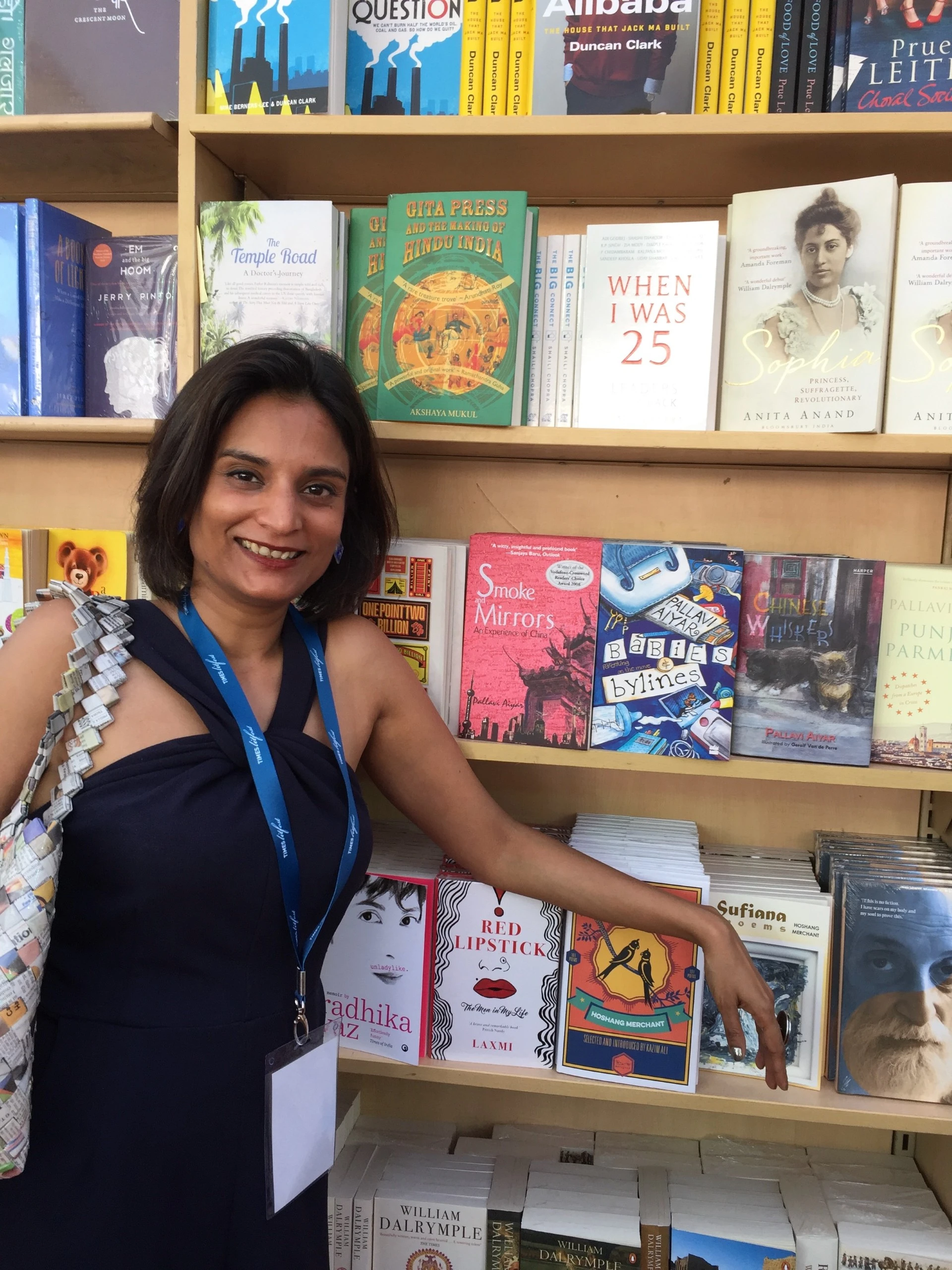
A Place Called Home
An interesting aspect of Pallavi’s experiences is how she views one’s identity and the impact living in different countries has on it. She says, “We tend to have place-based identities. When my son was in primary school he was asked, where he was from. He came home and asked me ‘What is from?’ What does that word, ‘from’ mean?’ Having lived in China, Brussels, Indonesia and Japan, he didn’t know what a place-based identity is.”
What does one refer to as home when you have travelled as frequently as Pallavi and her family have? She states, “Home is about values rather than a place. The primacy of national identity is reduced, our loyalties and rituals transcend borders but are no less powerful for doing so. For my kids, countries are merely lines drawn on a map. They are free of the over-heated emotion of patriotism. I can only try and make them aware of their enormous privilege so that while they do not become defined by place, they remain earthbound; aware that their cosmopolitanism entails responsibilities too.”
Reinventing oneself in a new country is mandatory she says. “I believe you have to view every city you live in with a sense of childlike wonder, an attitude that transforms the everyday into the magical. It’s important not to compare where you are to somewhere else. Have an attitude that appreciates a place for what it is, rather than focussing on what it isn’t.”
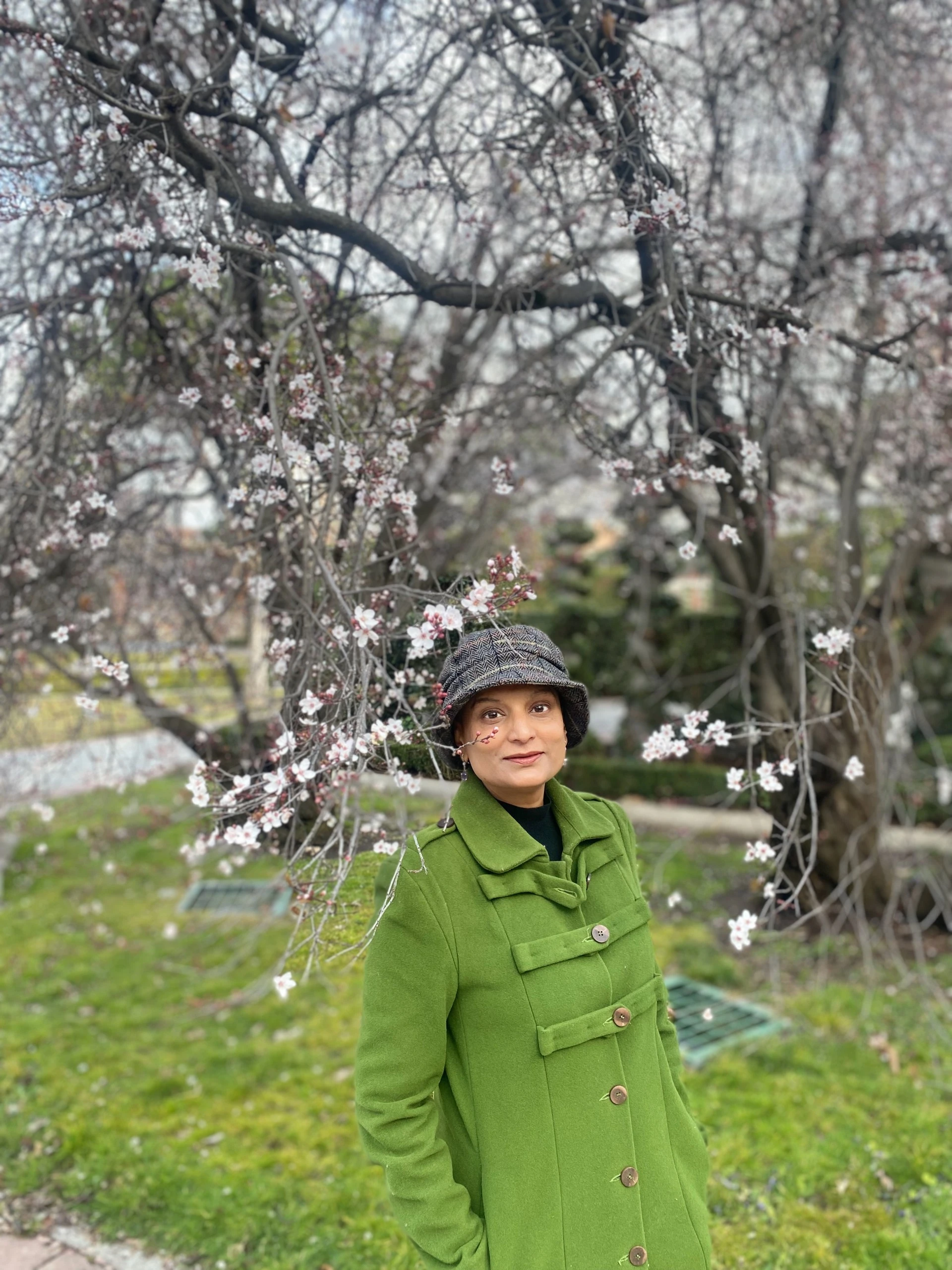
Pallavi Aiyar
Pallavi Aiyar is a prolific writer and that is a core part of her identity. She swears that being able to write has been her greatest blessing. “I write so I can process life. It helps me from becoming untethered. If I don’t write, I don’t feel well. It clarifies my thoughts, explaining myself to me.”
The added blessing here is that with a spouse whose job entails frequent travels, she can write no matter where she goes. “It is a large part of my sense of self,” she concludes.
Learn more about Pallavi Aiyar on her website. Her books are available on Amazon.
Read a similar story of Mihir Patki on smart investing and healthy living.

